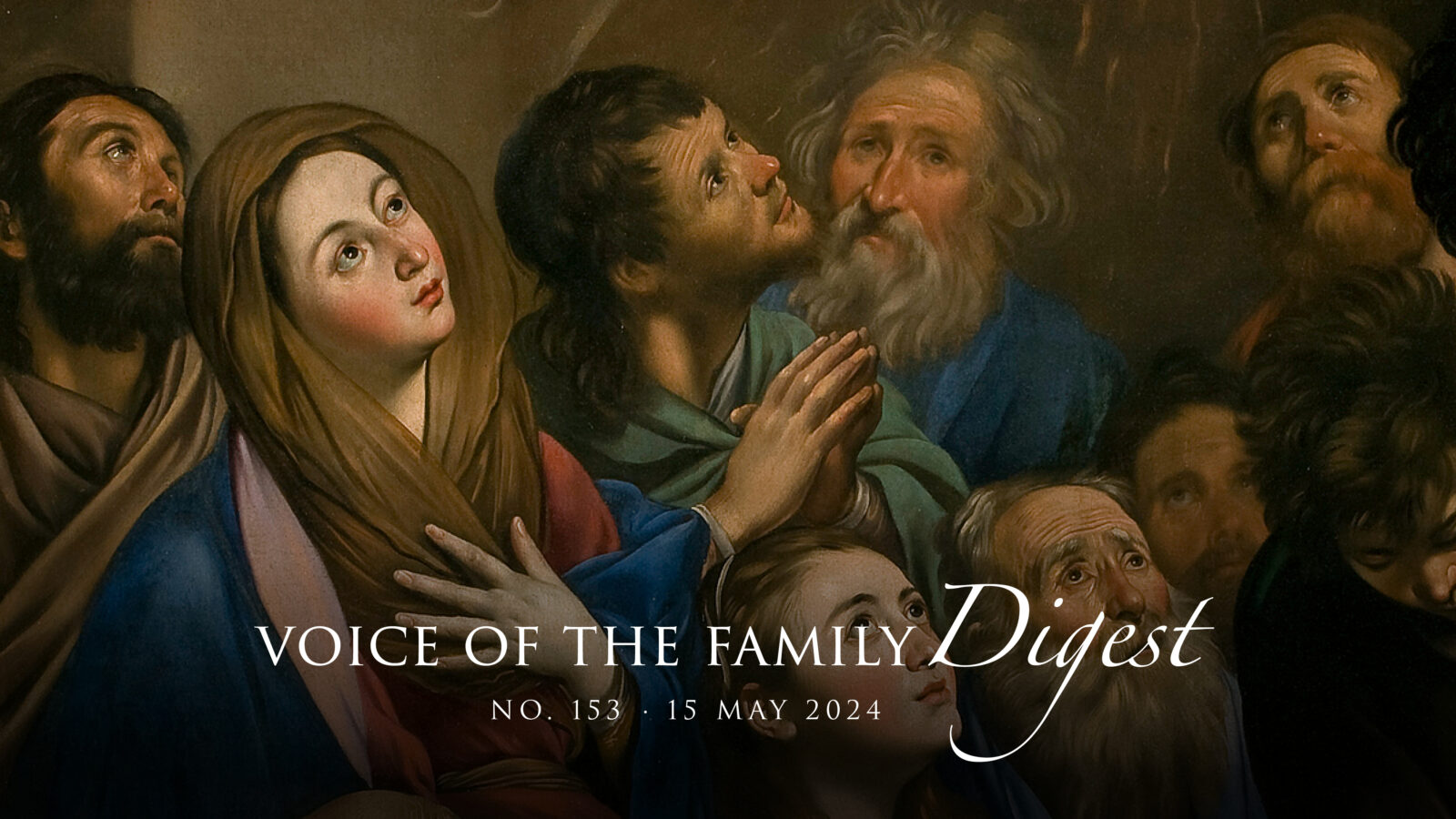Keeping the commandments: sermon on Pentecost Sunday
By a Dominican Friar | 15 May 2024

“If anyone love me, he will keep my word.”
From this Sunday’s epistle, we can see that even before the coming of the Holy Spirit upon the Church, there was already a feast called Pentecost. What did this Old Testament feast of Pentecost celebrate? Among other things, it was the day when the Jews commemorated the giving of the Law by God to Moses on Mount Sinai. They rightly considered this gift of the Law to be an honour for the whole people. As Moses said to them, when he repeated the whole law just before he died, “What great nation is there, that has statutes and rules so righteous as all this law that I set before you today?”(Dt 4:8)
Nevertheless, having the Law brought with it a problem. Of themselves, the Jews lacked the strength to observe all its commandments; 613 different rules, according to one count. St Peter in the Acts of the Apostles refers to it as “a yoke that neither we nor our fathers have been able to bear”. But although the Jews were in an especially difficult position, since they had so many extra commandments made only for themselves, the same problem faces all of us. Of ourselves, we lack the strength to keep the whole of God’s law. We can see the goodness of the ten commandments, say; but human nature alone isn’t able to keep the ten commandments, with all they imply, for any great length of time.
That’s why it was fitting for God to send the Holy Spirit on the feast of Pentecost. Our Lady and the apostles were remembering the gift of the law on that day; well, it’s the Holy Spirit who gives us power to keep God’s law. What is impossible for human nature becomes possible by the Holy Ghost, dwelling in us who believe. So, the sequence of this Sunday calls Him dulcis hospis animae — “kind Guest of the soul”.
Notice how Jesus associates these two things: the keeping of the commandments and the gift of the Holy Ghost. He says first, “If anyone love me, he will keep my word.” His “word” means all He has taught: the ten commandments, the sermon on the mount, all the truths of the faith. Are we in danger of forgetting part of His word at some crucial moment? No, He says, “the Paraclete, the Holy Ghost, will bring all things to your mind, whatsoever I shall have said to you.” The Holy Spirit won’t allow us to go wrong provided we want to go right; we shall never fall into mortal sin by absent-mindedness or sheer confusion.
God never commands the impossible. It’s a dogma of the Church that any person who is in a state of grace, who has the Holy Spirit within him, can keep all the commandments. If we’re not in a state of grace, this is impossible: we will inevitably fall in some time of strong temptation. But if we are in a state of grace, we can keep God’s law. Beware of an idea that is floating around in the Church today, the idea that it is enough for a Christian to keep only part of God’s law and not all of it. That’s like saying, two people can remain friends if one of them cheats the other, provided that he doesn’t also strike him. No, the law is like a chain that unites us to the throne of God. If you break any of the links in a chain, it doesn’t matter which, the result is the same.
Now our Lord encourages us here, by pointing to His own example. He says, “As the Father has given me commandment, so I do.” What commandment did He receive from His Father? The commandment to preach the gospel, even to the Pharisees and Sadducees, who would kill Him for it, and to accept the sins of the world on His own shoulders. Elsewhere, He says, “I have kept my Father’s commandments and do abide in his love.”
Yet, finally, I should venture to say that even Christ’s example will hardly be enough for us unless we also have the Holy Ghost within us. To keep God’s law our whole life long, it will be necessary for us to love doing so. And only the Holy Spirit can teach us to love the law of God. But, as St Augustine says, all things are easy to one who loves.
